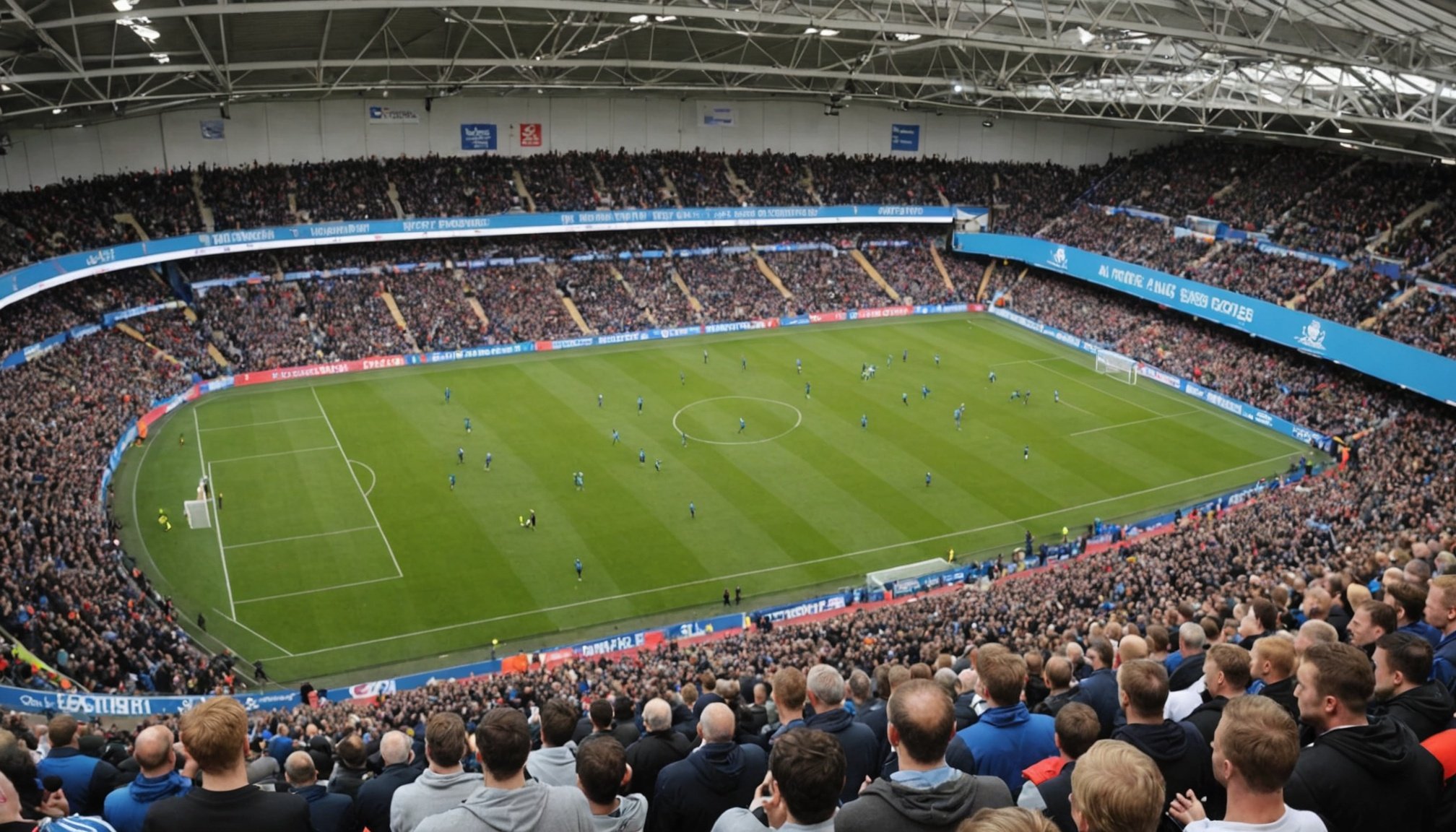Football’s Deep Roots in UK History
The history of football in the UK traces back centuries, revealing how the sport evolved from informal local games to a structured cultural phenomenon. Originally, football was a rough, community-based pastime played in villages and towns, often with varying rules depending on the locality. Its roots stretch deep into medieval England, where the game served as a social outlet, binding communities through shared enthusiasm and friendly rivalry.
One of the key aspects shaping the origins of football culture in the UK was its gradual codification during the 19th century. The establishment of official rules and the formation of clubs marked critical milestones that increased football’s appeal beyond local settings, transforming it into a national passion. These developments coincided with the Industrial Revolution, when urbanization and improved transportation enabled teams and supporters to connect more widely.
Topic to read : What role does diversity play in shaping UK football teams?
Early football was intertwined with social life and class dynamics. Matches were often associated with workplaces, schools, and local organizations, reflecting broader societal trends and fostering a sense of identity. For example, working-class communities embraced the sport as an accessible way to express pride and unity, which reinforced football’s place at the heart of British culture.
By understanding these formative phases, it becomes clear how the history of football in the UK established the foundation for today’s global football culture, characterized by deep community ties and enduring traditions.
Additional reading : What are the key strategies for success in UK grassroots football?
Football as a Core Part of National and Community Identity
Football and British identity are deeply intertwined, with the sport serving as a powerful symbol of local pride and national unity. In towns and cities across the UK, football clubs act as community pillars, providing a shared focus that transcends everyday differences. These clubs foster a sense of belonging and solidarity, reinforcing community ties through their history and traditions.
The impact of football extends beyond mere entertainment; it profoundly shapes local and national identity by connecting individuals to their heritage. Families often pass down their support for a particular club through generations, creating strong familial bonds rooted in shared passion. This generational connection is one reason football resonates so strongly, helping to maintain cultural continuity within communities.
Moreover, football’s influence nurtures social cohesion, offering common ground for people from diverse backgrounds to come together. Whether attending matches or discussing games, fans actively participate in a collective experience that reinforces their sense of place and identity. This phenomenon illustrates how football and community life are mutually reinforcing, making the sport an essential element of British social fabric.
Social Bonding and Traditions Through Football
Football traditions UK run deep, shaping not just the game itself but the social fabric around it. Matchday rituals—such as singing club anthems, wearing team scarves, and gathering in local pubs—create a shared experience that strengthens community ties. These traditions serve as a social glue, providing fans with a sense of belonging and collective identity.
The social impact of football goes beyond entertainment. It fosters social cohesion by bridging divides across age, class, and background. When fans unite to support their team, football transcends differences and cultivates connections that might not otherwise exist. This communal spirit is especially evident in how diverse groups come together at stadiums or watch games in shared spaces.
Moreover, football acts as a powerful tool in addressing social issues. Initiatives linked to the sport often promote inclusion, challenge discrimination, and encourage community development. By leveraging its broad appeal and deep-rooted customs, football becomes a platform for meaningful social change while reinforcing the cherished traditions that make it uniquely British.
Economic Impact and Social Investment
Football in the UK is more than just a sport—it is a significant driver of the football economy UK and plays a vital role in shaping both local and national financial landscapes. Clubs contribute substantially to economic activity through ticket sales, broadcasting rights, sponsorships, and merchandise, generating billions of pounds annually. This financial influence extends beyond the pitch, boosting retail, hospitality, and tourism sectors connected to match days and football events.
Employment is a key aspect of this economic ecosystem. Football clubs create a variety of jobs, from athletes and coaching staff to operations, event management, and retail personnel. The ripple effect supports local businesses, with stadium development and regeneration projects often acting as catalysts for urban renewal. Such initiatives rejuvenate neighborhoods, attract investment, and provide better infrastructure, benefiting communities around football grounds.
Beyond economic contributions, football clubs invest heavily in football clubs and society through social initiatives. Many clubs run outreach programs focused on education, health, and social inclusion, helping to tackle local challenges. Charitable contributions from clubs support a range of causes, from grassroots sports development to mental health awareness and youth employment schemes. These efforts demonstrate the sport’s capacity to foster community cohesion and offer sustainable social value alongside economic benefits.
In summary, the UK’s football sector is integral to economic growth and social progress, proving that investing in football can bring both financial returns and societal improvements.
Rivalries, Loyalty, and Passion in UK Football
Football rivalries in the UK are deeply rooted in history and culture, shaping the unique football fan culture that defines many communities. These rivalries often stem from long-standing regional differences and political tensions that have evolved over decades. For example, the fierce competition between clubs like Rangers and Celtic is not just about football but also reflects broader cultural and political identities linked to religious and national loyalties.
The loyalty of UK football fans is extraordinary. Supporters show commitment through chants, banners, and enduring support, regardless of their teams’ performance. This loyalty amplifies the passion during matches and helps perpetuate the intensity of football rivalries UK. Fans actively participate in rituals that reinforce a shared identity, making club allegiance part of their personal and community identity.
Regional pride is another important aspect. Football rivalries in the UK often mirror historical rivalries between cities or regions, turning matches into symbolic battles. Political tensions, especially in areas with complex histories, further fuel passion and loyalty among fans. These dynamics demonstrate how football transcends sport, becoming a powerful expression of cultural and social affiliation.
Real-Life Stories: Football’s Influence on Individuals and Communities
Football stories UK reveal the sport’s profound impact on both individuals and wider communities. Fans often recount personal experiences where football served as a source of inspiration, belonging, and resilience. For instance, many describe how supporting a local team helped them navigate difficult times, provided social connection, and built lifelong friendships. These anecdotes highlight football’s role beyond mere entertainment—it acts as a social glue that unites diverse groups under a common passion.
Experts emphasize the cultural significance of football in the UK, noting its ability to reflect societal values and foster identity. The game is a mirror of community spirit, helping individuals find pride and purpose. It is frequently used as a platform to promote inclusion, combat discrimination, and support youth development programs. Through these means, football stories UK showcase how the sport can drive positive societal change that extends well beyond the pitch.
Examples abound of football initiatives improving lives: community clubs using the game to engage young people, reduce crime, and promote health awareness. These stories exemplify how football’s influence transcends the boundary lines, making a meaningful difference by uniting people and nurturing hope in places that might otherwise face challenges.








